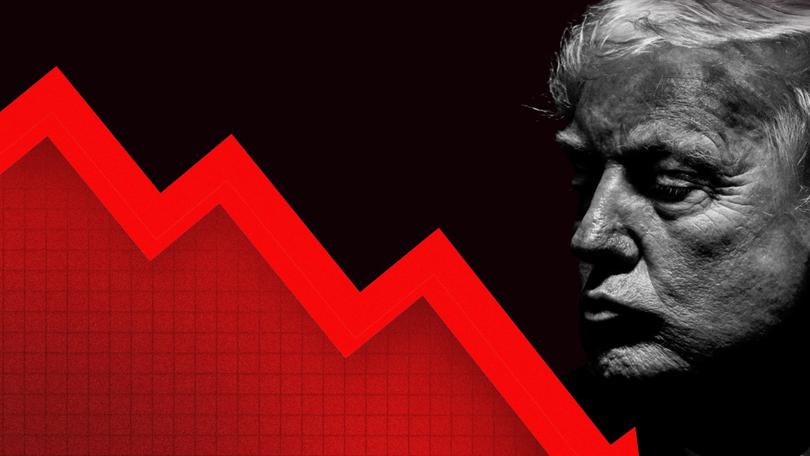Australian consumer sentiment plunges as Trump tariff triggers stock market carnage
Australia’s consumer sentiment has plunged to a six-month low after US President Donald Trump’s sweeping tariffs triggered carnage on global stock markets.

Australia’s consumer sentiment has plunged to a six-month low after US President Donald Trump’s sweeping tariffs triggered carnage on global stock markets.
Australians are showing deepening unease about developments abroad, according to the latest Westpac-Melbourne Institute consumer sentiment index, which plunged 6 per cent in April to 90.1 — its lowest level in six months.
Sentiment was 10 per cent lower among those surveyed after Mr Trump announced his so-called reciprocal tariffs, compared with those surveyed prior.
Sign up to The Nightly's newsletters.
Get the first look at the digital newspaper, curated daily stories and breaking headlines delivered to your inbox.
By continuing you agree to our Terms and Privacy Policy.On Monday, Australian shares crashed to their biggest loss since the early days of COVID-19, with more than $100 billion wiped from stock values as the fallout from Mr Trump’s tariffs wreaked havoc on global markets.
“The scale and breadth of tariff increases, which included a 10 per cent tariff on Australian goods, came as a major surprise, triggering a sell-off in global financial markets,” Westpac head of Australian macro-forecasting Matthew Hassan said.
“With the situation still deteriorating, there is a clear risk of more significant sentiment declines in the months ahead.”
The Westpac survey measures confidence based on assessments of family finances, expectations for the economy and whether now was “a good time to buy a major household item”.
Sentiment towards the economy showed a clear tariff-related deterioration.
Around family finances, consumers are feeling a tighter pinch now and less positive about the outlook. Consumers were also less confident about the prospect of further interest rate cuts.
According to Westpac, consumers are nearly even split on whether interest rates will fall or rise. That compares with a month ago when nearly 60 per cent expected rates to be the same or lower in a year’s time.
The Westpac survey results came the same day National Australia Bank revealed business conditions were largely unchanged in March and remained a little below average.
An uptick in profitability was mostly offset by slightly lower trading conditions and employment. Meanwhile, business confidence eased slightly and remained in negative territory.
“Businesses remain cautious about the outlook, with confidence and conditions both below average,” NAB chief economist Sally Auld said.
“We will be looking to see how recent tariff announcements flow through to business sentiment in upcoming surveys.”

